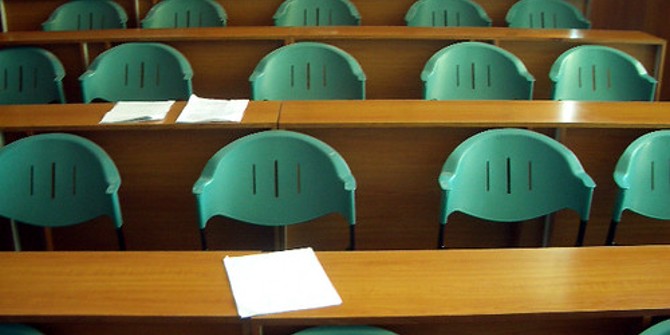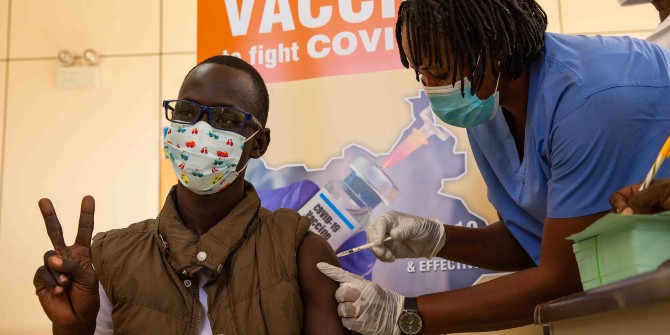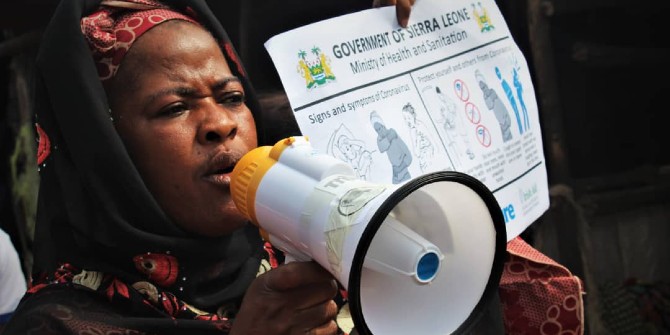In Europe, universities continued teaching during the pandemic and have now largely resumed face-to-face tuition. But the Philippines is beginning a second academic year in the shadow of COVID, with students still suffering the effects of a lack of in-person tuition, pandemic-induced poverty, and an inability to adapt to remote learning, writes James Michael Uaminal.
Harrowing accounts of the difficulties experienced by college students in the Philippines abound – from students deferring graduation because their subjects required specialised facilities that were unavailable, to desperately posting on social media for donations to purchase laptops and other gadgets, to mental health issues.
The learning loss in the higher education sector cannot continue. The life prospects of the current cohort of students are at stake. In contrast with basic education, where a centralised Department of Education (DepEd) essentially dictates both policy and implementation at the national level, governance in higher education institutions is fragmented by design and by circumstance. Under the law, the Commission on Higher Education (CHED) is largely limited to formulating and recommending policies and programmes, setting minimum standards, and monitoring and evaluation of public and private colleges and universities. Furthermore, each state and local university or college has its own governing board, while private institutions are organised as corporate entities or associations.
One policy response that CHED could adopt is a Higher Education Learning Continuity Plan that is nationwide in scope, similar to that of the DepEd’s plan for basic education. Although CHED released the general guidelines on the implementation of flexible learning early in the pandemic, this policy document lacks detail, especially on how to carry out the principles and strategies it contains, and is in need of updating and recalibration given the present circumstances. Much has changed since the guidelines were enacted in September 2020. Vaccines are now available, variants of the virus have emerged, and government policies on lockdowns and health protocols have changed.
The learning loss in the higher education sector cannot continue. The life prospects of the current cohort of students are at stake
Another dire problem made more manifest by the adoption of remote learning is that ICT resources are unavailable or inaccessible to many Filipinos. The pre-pandemic 2019 National ICT Household Survey revealed two alarming findings. A huge majority of households (79.7%) reported that they do not own a computer, and an even greater percentage (84.3%) had no access to the internet. The top three reasons cited by those who lack internet access are (1) the high cost, (2) the high cost of equipment, and (3) the unavailability of internet services in their locality. Since these problems are primarily poverty-related, the government must consider providing free internet connectivity to students who use learning portals and education-related websites, facilitating the recycling and donation of electronic devices to financially-challenged students, and tweaking the existing financial assistance programmes and scholarships to include an ICT subsidy. To enable students to afford computers, school-related financial obligations must also be relaxed through a student loan moratorium and deferral of the collection of tuition fees.

While tuition in public universities and colleges is already free by law, some of the conditions this imposes should be temporarily waived. For example, the government must consider the proposal to set aside disqualification for free tuition on the grounds of failure to graduate on time from a degree programme or to pass one of the courses or subjects – particularly if these grounds occurred as the result of the pandemic, such as financial problems, mental health issues, or catching COVID. Removing free tuition for these distressed students will only aggravate their already difficult situation.
Lastly, all the policies aimed at school reopening and learning continuity will count for nothing without a COVID vaccination programme targeted at the HE sector. While CHED has set up a registry for voluntary vaccination, it is unfortunate that it does not extend to students. The registry is limited to teaching and non-teaching staff. Higher education can play a particularly important role, as the science, medicine, and public health departments of universities and colleges can help students overcome vaccine hesitancy and misinformation. Since vaccination coverage varies greatly across different regions in the Philippines, university-based vaccination is a step forward in achieving herd immunity because it can complement local vaccination drives, especially for students whose cities or towns are experiencing vaccine shortages.
As classes restarted in August and September – albeit remotely or online, except for degree programmes like medicine, nursing, and medical technology, where limited face-to-face classes are permitted – policymakers must bear in mind that the pandemic and its adverse effects linger. COVID must not be the death knell for Philippine higher education. Policies and programmes must deliver meaningful help, opportunities, and hope to students.
This post represents the views of the author and not those of the COVID-19 blog, nor LSE.






A very good read. Proud of you oon to be Atty. James. Cheer!
This article reflects the different circumstances in our society in terms of access to education. -a grassroots level of magnifying the situation. I hope higher authorities will acknowledge this. 🙂